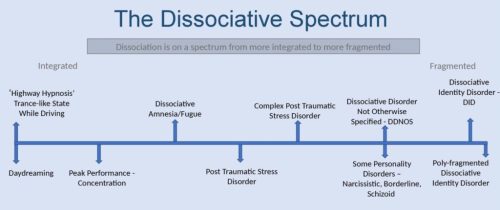
Trans man (he/him) Chaos and a constant feeling of emptinessRadfems/terfs DNI, Forcefem/detrans kink DNI, MDNI.
177 posts
Latest Posts by genderschmender - Page 5
i think i am fundamentally unlovable. i break everything i touch.


i think i am fundamentally unlovable. i break everything i touch.

why my hand shaky
Fuck it we bawl (starts sobbing uncontrollably)
i dont want much i just i want to be left to rot
at least there's gay people
not the bell tolling LMAOOOO 🙈 i wonder for whom 🤔


I just tried to write a poem n almost died. Never trying to get in touch w my emotions again !!!
i do like sensitive young men i just couldn't eat a whole one unless i was really hungry
I’ve come here to make an announcement! Shadow the hedgehog’s a JOLLY ass NICE LISTER! He GAVE PRESENTS to my fucking wife. That’s right! He took his hedgehog fuckin BURLAP SACK out and GAVE A GIFT to my fucking wife, and he said his BELLS were “this JINGLY!” and i said “that’s JOLLY!” So i’m making a callout-post on my twitter dot com: Shadow the hedgehog your STOCKING’S FULLA COAL and guess what? Here’s what my STOCKING looks like! 💣💣💣💣💣💥💥💥💥 That’s right baby! No coal! No sticks! No itchy sweaters! Look at that it looks like CANDYCANES and TOYS! He GIFTED my wife so guess what? I’m gonna GIFT the world! That’s right! This is what you get! My super RED-NOSED REINDEER!


FUCKING ATTACKA U WITH MY HOOVES

RAHHHHHHHHHHHHHHHHH
i don't need therapy i need my head crushed by a large rock
I just want to go to sleep and never wake up again.

i'm so touch starved. Will u please punch me in the face

i’m like if a court jester had a fat ass and a sickening sense of melancholy
Hypnosis and Dissociative Disorders
I've been meaning to write this since Charmed.
I shall not point fingers or name names but during Charmed 2024 there was a 101 class that taught that it was unsafe to play with those who dissociate as part of a mental illness. The graphic, which I'll paste below, used the word "Can't".
I wanted to speak to that.
Hypnosis has several different definitions. One could go to a hypnosis event and ask every presenter "define hypnosis in a single sentence" and get a different answer every class, likely a few may even contradict.
One such definition I could use is "Hypnosis is an altered state where a hypnotee is lead to a suggestible state where the hypnotee is dissociated from their conscious thinking." though one could say it is "an altered state that leads to breakdown in critical thinking and a heightened state of suggestibility" or you could start talking about the unconscious or subconscious mind.
Fact is, there's a lot of theory work at play and the language we use to shape the concepts isn't as important as understanding the concepts.
Dissociation is a natural part of hypnosis. It's also a natural part of existing. In much pre-talk patter we as hypnotists tend to ask an introduction level hypnotee to think about their experiences with time dilation, with highway hypnosis, with spacing out, with walking into a room and forgetting why you came in there.
Things so normal that as part of rapport, a hypnotist tends to assume the hypnotee can latch on to one of the concepts.
Dissociation is a spectrum. Literally. Within psychology the DES-II tool grades dissociation experiences on a scale, hence the acronym.

Graphic source
When people, including myself at times, describe dissociative disorders they tend to be referring to disorders that focus on dissociation as their main symptom. Depersonalization, Derealization and of course Dissociative Identity Disorder. Over the course of my life I have been diagnosed with all three.
But the scale includes Post Traumatic Stress Disorder, both complex and standard. Complex simply refers to a level of trauma that has been ongoing long enough that it is not a single memory or incident that triggers the symptoms.
According to the American Psychiatric Association one in eleven people will be diagnosed with PTSD at some point in their life with 3.5m diagnosed per year in the USA.
Which is to say that dissociating as part of an illness includes 8% of the population. Does that mean 8% of all potential hypnotees are too dangerous to play with?
...the answer is not a clear cut, "no". There is some elevated danger. But rather than teaching people not to play with those who live with these experiences, perhaps we can teach why there should be heightened caution and then allow people to navigate together.
We should always strive to educate and provide tools. When you tell a person they can't do something then they'll just do it without understanding why they aren't supposed to or, worse, predators will find those who were excluded from safer spaces. Harm is not reduced, an educator just gets to walk away from the harm with a simple "I said they shouldn't".
And plus, I said 8% of the general population...
Within hypnosis circles I assure you it is far higher when one factors in that multiple studies have supplied evidence that hypnotic susceptibility increases along with dissociative capacity.
Suffice to say, from utilizing hypnotic susceptibility tests (HGSHS) and dissociative tests (SDD and DES) the more a person dissociates, the more susceptible to hypnosis they are.
The human mind uses dissociation as a way of coping with physical and emotional pain, among other necessary inner needs, and so a person suffering from a mental illness that features dissociation becomes a naturally gifted hypnotee. It's a matter of practicing a skill constantly without realizing that they are refining something useful. Wax-On/Wax-Off.
This leads to a number of safety concerns. We've typed on serious concerns such as altering sense of identity and derealization attacks from lack of grounding. This is a topic near and dear to our heart as we acknowledge that we needed to gain an education in how to safely consent to hypnosis play and failing to do so in the past caused harm to ourselves and to those we played with.
So here's a list of potential dangers in playing with those who are further along the dissociative spectrum, how to mitigate those dangers and create a space where everyone can play safely.
I'll focus on hypnotees with dissociative experiences for the most part as the relationship between dissociation and hypnosis is primarily a concern while the hypnotee is in trance. That having been said I acknowledge that Dom Space connects just as much to the spectrum and an entire new post can be made on the topic of performing hypnosis when you have a dissociative disorder.
Heaven knows it is a topic I study feverishly to maintain safety for myself and those who entrust their mind to my care.
So... with that said, let's talk about the dangers.
Abreactions
This is likely the most common concept that comes up when thinking of the relationship between PTSD and hypnosis. An abreaction is the moment a hypnosis session or scene goes off the rails because the hypnotee is actively reacting to a trauma trigger while they are in a suggestible state. Their Fight/Flight/Freeze/Fawn impulse may be triggered and cause a physical or emotional reaction which was not part of the negotiated/planned scene.
This could be a cut and dry example of "and think about all the times you've been hypnotized right there on that sofa" causing a hypnotee to follow the suggestion and regress in memory to a time before a bad break-up when their former partner hypnotized them on the sofa they are currently on.
It could be an abstract example like "imagining yourself in a field of flowers and breathing in, noting how lovely the scent is, like the most beautiful perfume." causing sense memory to trigger the scent of a perfume that was in the air during a traumatic moment of their life that instantly flips the switch in their mind to go into F/F/F/F mode.
Likely any given hypnotist will experience this at some point in their life. The first example is one that any person could experience. Hypnosis naturally draws upon associations and when you create an association in the present to a negative emotion in the past you will summon it into the present.
With the second example, that association is already there and it was activated during the scene. The source of the abreaction. I avoid using the word "Trigger" both because of shitty internet discourse in the 2010s and because the term is used for other things in hypnosis, but that is what it is. A sense, a memory, an association which causes the source of trauma to intrude upon the present. The danger that the hypnotee experiences in these moments is very real.
Typically when I discuss these topics I put a disclaimer and emphasize how present the traumatic experience is. My hope is that anyone who is interested in hypnosis knows full well how true and powerful inner experiences are. If you doubt that then I sincerely do not know why you are in this community to begin with.
How to prevent an abreaction is important but should never be learned at the expense of learning how to handle an abreaction. Prevention is about disclosing during negotiation, asking the hypnotee to volunteer anything which may activate a negative reaction or simply what topics to avoid. Phobias are common enough examples of things that a hypnotist should know before working.
But disclosing every part of a trance or scene during the early phases of a hypnotic relationship is essential too. This way the hypnotee does not get surprised by anything propping up during play and they can measure their expected reactions before going into a suggestible state.
But if, despite caution, something does happen? What then?
Noting that every abreaction manifests specific to the person, their situation, their emotional state and how the scene caused it to happen. The first thing the hypnotist needs to do is not overreact. Over-correcting is an easy mistake to make in the moment but it will lead to an overall negative outcome.
Assess the situation and try to recognize what is happening. I had mentioned that the reflex is "Fight/Flight/Freeze/Fawn" this can be obvious like thrashing or ejecting out of trance instantly. It could be something harder to notice like locking up and becoming unresponsive or emotionally regressing to a terrified state.
If the hypnotee is still in trance then do your best to offer comfort and grounding. Remind them what is happening, remind them that they are safe, perform some grounding exercises such as box breathing (breathe in, hold, exhale for a number of seconds).
Touch is a case by case situation here. I know if I were having an emotional flashback to an assault then being touched would launch me further into abreaction territory. If you believe holding a hand would be beneficial then at the very least communicate it "I'm here, I'm going to take your hand, everything's safe, I'm here."
Over distance you should communicate this via modality. "I'm here, just listen to my voice, focus on the sounds in the room, I'm not going anywhere" for an audio example, "Just feel the blanket beneath you, you can brush your fingers against it if you need" for touch based.
The idea is to use emotional comfort, sensory grounding and patience to bring the hypnotee gently out of the moment.
Then apply aftercare and discuss what happened, what could be improved, what the hypnotee needs and acknowledge that the stress of these moments impacts the hypnotist too. Leave room for the hypnotist to recover as much as the hypnotee.
Decide together if this will end the session or not. Do not cut off on principal. If someone is conditioned to believe that displaying their negative reactions will lead to play stopping then they will hide those reactions. Accept that they happen. Learn how to grow together and incorporate care, comfort and safety into every scene.
Spontaneous Hypnotic Amnesia
One danger for those who suffer dissociative disorders is that their brains are very good at editing information. The further down the spectrum one is, the more adept their mind is at naturally pushing away things that they do not wish to think about nor have the capacity to integrate.
One categorization of dissociation is a failure for the brain to integrate information and experience. It is the cause of time dilation, it is why critical thinking is bypassed and it is why those further on the dissociative spectrum are able to compartmentalize their experiences so effortlessly that they can maintain dissociated personalities.
Where most people who practice hypnosis typically have to study how to achieve post-hypnotic amnesia, those who begin working with hypnosis with patholigized dissociative experiences may need to learn how not to experience it. I include this as I have spoken to multiple people who have lived this reality and it is something we ourselves experienced in the past.
Should a newer hypnotee show signs that they are not remembering what is happening during trance, it is a good practice to train them on how to retain information. Hypnotee Agency is a skill that one develops and allowing them the knowledge that they can chose to retain the information during a trance is as important as reinforcing how easy and normal it is to forget when that is a negotiated part of the scene.
All it takes to be safe here is to just remind them that if they wish to and find it enjoyable to do so, they may retain the information from this trance.
Nothing more complicated than that.
Derealization/Unreality
Derealization is a common experience within dissociation that is actually lower on the dissociative spectrum than PTSD. It is when you do not feel attached to your present experiences in real time.
A common version of this is "Deja Vu" which is a sensation where you are having difficulty integrating your present experience because it "feels" like you've already experienced it.
It can manifest in many other ways, however the commonality is that the person experiencing this knows that it's abnormal. When a person is disconnected from their surroundings like this they may experience a barrier between themselves and the world, they may have a distorted sense of time and they may become physically unresponsive and withdrawn.

Source: Mayo Clinic
The best way to handle this is to make sure that grounding always includes a thorough count-up that lets a person feel both in their body (this will help with depersonalization too) and aware of their surroundings. Ensuring both debriefing and aftercare focus on keeping reality in the room is important when someone's sense of what is real can drift.
For that reason it's a good idea to try and reinforce those ideas of what is real and save them in a little box that can be stored away if there are ever any reality altering suggestions in play, that way retrieving and unpacking that box can just be a natural part of the post-scene.
I linked it earlier, but my post on the topic can be found here.
Depersonalization/Altered States of Identity
Ah, our favorite soapbox.
Much like derealization, depersonalization is a symptom that is lower on the scale than PTSD and is actively invoked during inductions such as the Bandler which turns a handshake into the hypnotee starring at their hand and having the sensation of the hand distanced from their mind. Literally dissociating the hand from your body and using that sensation to build a trance.
It's a good induction. All forms of dissociation are not bad things. That is something I want to make sure an audience fully understands. This post is here to destigmatize, particularly when a 101 class was teaching stigma.
Depersonalization is a disconnection from one's sense of self. These are the moments when one feels like they are not the ones living through a moment, they are experiencing themselves from an outside perspective.
Once again, things that are utilized heavily in induction patter.

Source: Mayo Clinic
The derealization advice works well in this case, particularly the idea of creating a "back-up" to restore carefully at the end of a scene.
The big difference though is that depersonalization as a natural thing that those with dissociative disorders do can lead to some bleed when doing suggestions which alter a person's sense of self. I highly recommend an optional suggestion or affirmation that can help a hypnotee ground themselves. That may be too close to therapy for many though.
The hard part about being safe with depersonalization symptoms is that they are typically things that we actively engage with during hypnosis. I guarantee at least one person read "Feeling like a robot or that you're not in control of what you say or how you move." and thought of that as an absolute win.
This is where a bit of negotiation and hypnotee agency comes into play. Reality needs to be kept in the room during all hypnosis. Diving into ego-death or erasing reality may be tempting, especially for those who aren't particularly fond of reality or themselves, but it is too dangerous to surrender those things.
My definitive post on the topic has more information.
Though while I'm talking about altered personalities, I want to make something clear which I did not type about much in my Personality Play post...
Plurality
This is a topic on its own which could take on an entire post to itself. I may yet write it. If anyone has read our Madison and Belladonna stories they would know that they are written entirely based upon the life lessons Daja and I have been learning while I began therapy and was diagnosed with Dissociative Identity Disorder. Many of my lessons for how to safely play with plural systems are mixed in with the fiction.
When I say Plural I mean to refer to those who have multiple dissociated personalities, along with circumstances such as dissociative barriers.
There are as many displays of plurality as there are people who experience it. Every system is different. No two people are not on fire (awww).
So with that said, any play on either side of the watch is going to be lead with self-advocating. A hypnotic relationship involving a system (or more than one, even) will need a level of disclosure. Not just that a system exists but how that system manifests. What patterns are known regarding switches, what best works when an unexpected switch occurs, what levels of dissociative barriers exist between alters/parts, what terminology is preferred...
Wait, that's a lot to throw at once.
Our version of plurality is based upon Dissociative Identity Disorder. Which is to say that my system, originating via complex PTSD during childhood, used to have firm dissociative barriers between one another. This meant that, prior to diagnosis, you could have an emotionally charged conversation with me, Dawn, and then the next day Cammie will wake up and depending on the level of dissociation (typically but not always linked to stress or proximity to trauma triggers) will either not remember what happened during that conversation or will not carry the emotions that I had experienced. "Not remembering" can simply be "won't think about"
As I said, it's quite subjective. But the conceit is that with those on the DID spectrum will have a complete disconnect between parts/alters.
For those with less dissociation, but still experience plurality, they may not have amnesia or barriers between parts, allowing themselves to communicate with one another actively.
Within psychological communities there is eternal debate on all of these experiences and one of the more poignant debates is that the difference between DID and OSDD seems to just be a level of severity and that treatment and therapy tactics tend to move DID patients into the OSDD box and so they shouldn't be labeled as separate disorders.
These rules on amnesia, inner communication and emotional consistency between parts typically apply outside of disorders. I do not wish to engage in syscourse. But as above when I mentioned abreactions, those who practice with hypnosis know how capable a mind is to create hypnotically induced personalities. There are experiences outside of the DSM-V and that really shouldn't be a controversial statement.
A switch is when one part/alter trades out for another. The reasons are hyper specific to every system and cannot really be predicted without knowing their circumstances intimately. For instance the scent of lavender will draw me out without fail.
These can happen without warning and during hypnosis. Being cautious about body language, tone of voice and sudden changes in mood are the best you can do without guidance from the one with lived experience.
I'd also cautiously warn to end a scene and check in if there is an unexpected switch and there's no negotiated playbook on what to do in case of a switch.
The first Madison and Belladonna story tells the story of that very circumstance because that happened in my real life.
For safety it is best to try and communicate with the entire system over how to approach any aspect of hypnosis play. Exploring is a collaborative action and it can be a rewarding experience to find what works and what doesn't work. But it does take time.
For some basic "until I know better" rules, I'd say NEVER FORCE A SWITCH is a fairly basic rule, though. Also do not assume consent for a specific part/alter counts as consent for the whole system.
There is so much to say on this topic and I will likely revisit it at another point, but much of the safety tied up with DID and identity based dissociative disorders boils down to the fact that you are negotiating consent for a group and that you cannot always guarantee that the hypnotee at the start of a scene will always be present during the entire scene.
To that, I say treat switches like an abreaction, display acceptance and curiosity and don't get too hung up on the circumstances.
At the end of the day plural folx are just people too, just not person.
So... why did I write all this, anyway?
A lovely friend of mine recently joked that Charmed 2024 was the "Year of Plurality" and in a way they were right. I've been attending the event since 2020 and where my first had been a humble little class of 8 or so people on a Sunday afternoon ran by Vulpes Automata (Vulpes teaches the same class at Plural Positivity, albeit without the hypnosis content, a recording is hosted here) this year's event included many systems declaring themselves as such on their badge, both an in-person and online unconference that stretched beyond the time limits put in place and were feverishly well attended.
It has done my heart so good to see the safety and community growing and becoming more accepting.
It reminds me of the community's slow growth to accepting and embracing the transgender community in the mid-2010s.
Which is why I wish to be firm about trying to stop bad ideas from taking root in how we teach on these topics.
Some may remember that in the 2000s, respectable resources teaching hypnokink used to state firmly to "confirm biological sex" with any potential play partner. Said material has been revised. Times change and communities grow.
So when I see this teaching graphic saying that those who dissociate as part of a mental illness "Can't" be hypnotized, due to safety concerns? I get worried.

It was being used in a 101 class at the very same Charmed event that I am praising for having such good acceptance of plural experiences?
I lived this once as a closeted transgender woman. I don't want to live it again with our DID.
And I remember that "never play with anyone who has a mental illness" used to be taught in the same resources that once said to disclose one's "biological sex". People have taught this in classes and been approached by someone who had a mental illness and told how ignorant it was to teach that they could not be played with.
We, as a community, can do better.
I'd rather a 3 hour 101 become a 4 hour 101 and teach this material than to dismiss those who are the most vulnerable and susceptible and have them seek their trances from those who do not have reservations about safety and ethics.
Thank you for reading. I know this was a big soap box.
Deadlifted 405. 3 reps 8 sets.
"I should kill myself": self-serving, reactionary
"we should all kill ourselves": building community and connection, ideologically correct
me n the girls walkin into target headed straight to the clearance bread rack

Self destruction is hot, attractive and addictive. I just need it to be more toxic, more damaging. I want it to hurt.
*guy being hunted for sport like a prey animal voice* hehehee weeeeee!!! heheheee chase me chase me chase me!! x3 hooraaay!!!
Wanting to kms but also hating commitment I’ll get to it eventually 🙏
Codependent QPR where we also have a suicide pact and are mentally ill together